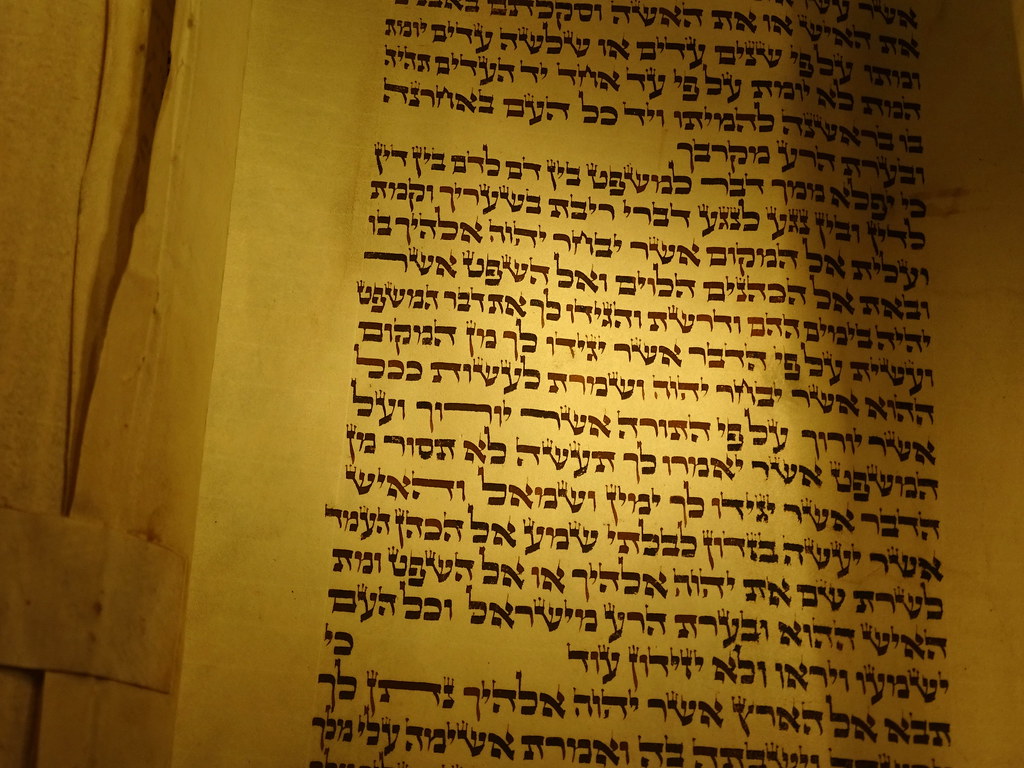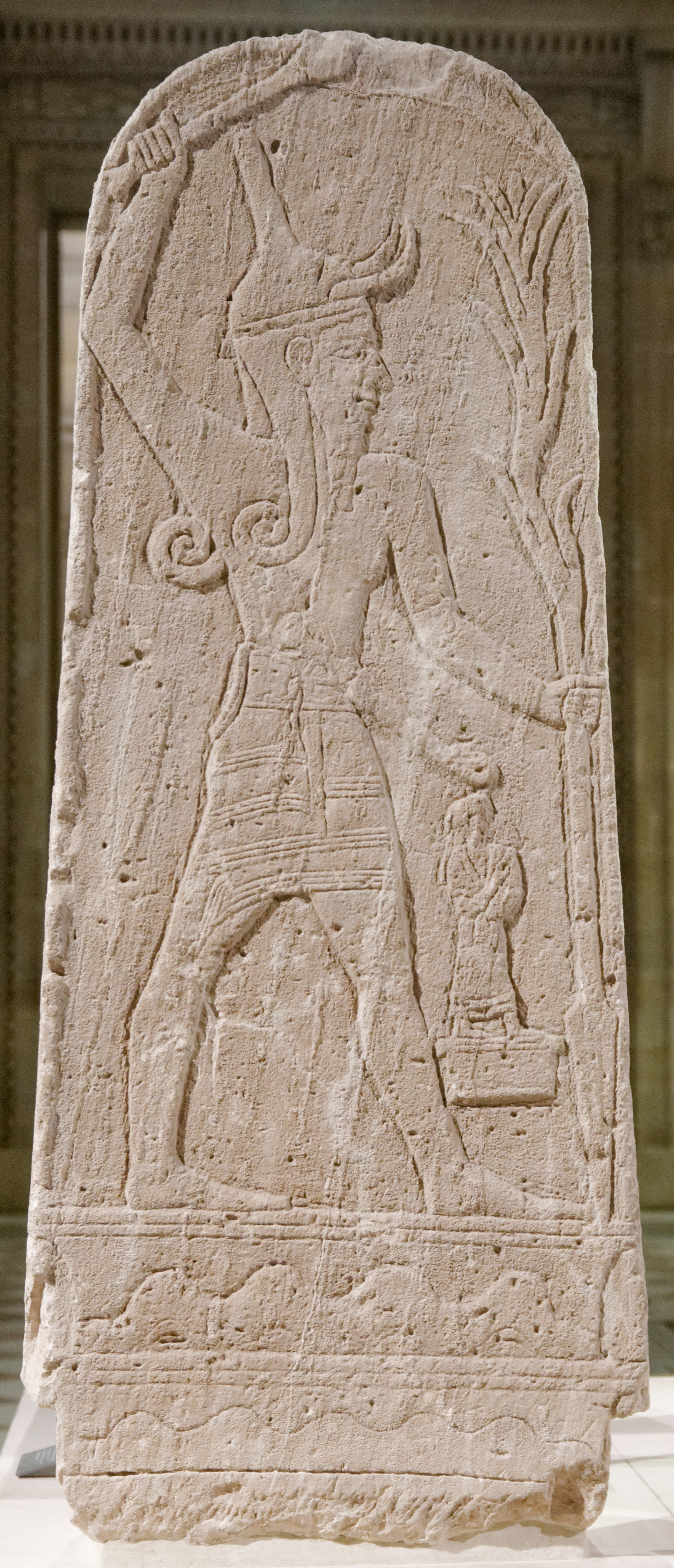Blog
Bulletin Articles
Summaries, Job 42-Psalm 119:32
Monday, November 04, 2019
Job 42 concludes the book. It begins with Job’s reply to God. He acknowledges that in questioning God, his mouth was outrunning his understanding. From now on, he will be content to listen to God, and he repents of questioning Him.
In response, God accuses Eliphaz, Bildad, and Zophar of not speaking the truth as Job has done. He tells them to make a burnt offering and get Job to intercede for them, which Job successfully does. After he does so, God blesses Job, giving him twice as much as he had had before and 10 more children to replace the ones who had died. At the end of the book, Job dies in honored old age.
Psalm 117 is the shortest psalm in Psalms, as well as being the shortest chapter in the Bible. It urges everyone to praise God because of His steadfast love (the Hebrew word hesed, which is untranslatable but means something like, “God continuing to love us because He promised He would) and faithfulness.
Psalm 118 is a processional psalm with significant Messianic overtones. It begins with different Israelite groups (probably arranged by group) being called upon to praise God. The primary singer of the psalm then declares that God has rescued him from his enemies, so he will never be afraid of anyone as long as God is with him. His enemies pressed him hard, but he defeated them. Likely, different groups are singing the content of 118:15-16. The primary again affirms that God has protected him, and then has a discussion in song with the people who are supposed to open the gate for him (vs. 19 and 21 are the primary singer; vs. 20 and 22-27 are the chorus). The psalm concludes with both singer and chorus praising God.
Several verses from this psalm are quoted in the New Testament. 118:22 is quoted widely by Jesus and others, and the crowds are singing 118:26 during the triumphal entry. They may, in fact, have sung all of 118:22-27 as Jesus was going through the gates of Jerusalem.
Psalm 119:1-32 is the opening of the longest psalm in the book and longest chapter in the Bible. This section, and indeed the entire psalm, exalts the word of God. The content of the psalm is organized acrostically (each line in the first eight verses begins with the first letter of the Hebrew alphabet; each line in the second eight verses begins with the second letter of the Hebrew alphabet, and so on), so the content can be repetitive.
The first section highlights the importance of seeking God’s law wholeheartedly. The second points out the significance of the word to the young. The third asks for God’s blessing because the psalmist has been devoted to the word. The fourth promises renewed attention to the word if God will rescue the psalmist.
Summaries, Job 37-41
Monday, October 28, 2019
Job 37 is the conclusion of Elihu’s speech. If you’ll recall, Elihu is the whippersnapper who was so provoked by the ignorance of Job and his three friends that he had to say something. He begins here by inviting Job to consider the majesty of God as revealed by thunderstorms. He creates lightning, thunder, snow, rain, cold, and ice. The storm goes wherever He wants it to. He asks Job whether Job is God’s equal in understanding and power. Does he know how God makes thunderstorms? Can he himself make a drought? God is incomprehensible, so wise men learn to fear Him.
Job 38 is the beginning of God’s discourse. Unsurprisingly, He gets the last word in the book! He opens by inviting Job to prove his fitness to question Him. He asks Job if he was around when God created the earth, or restrained the seas, or separated day from night. Has Job traveled in the depths of the ocean, followed light to its source, or seen how various forms of precipitation are created? Can Job guide the stars, control the weather, or provide for the animals of the world?
Job 39 continues in similar vein. Does Job understand the lives of the mountain goats? Does he know everything about wild donkeys? Can he tame wild oxen? Does he understand God’s purpose in the folly of the ostrich? Does he strengthen the horse? Does he guide the flight of the hawk?
Job 40 contains God’s summation. He invites Job to accuse Him if Job can understand all of those things. Not surprisingly, Job declines the invitation, acknowledging that he isn’t fit to question God. Nonetheless, God continues to point out Job’s limitations. He asks if Job is able to rule mankind as God does. He describes Behemoth (some large beast whose identity we can speculate about but not determine) and asks if Job can control him.
Job 41 continues God’s exploration of Job’s deficiencies. The entire chapter concerns Leviathan, another unidentified creature. God asks Job if he (or any man) is able to tame Leviathan, and if he isn’t, then how can he presume to question God? The rest of the chapter describes Leviathan’s attributes in poetic terms: his armor, his fiery breath, his strength, his invulnerability in battle, and his speed.
Summaries, Psalms 112-116
Monday, October 21, 2019
Psalm 112 examines the blessings that come to the righteous. This looks like a psalm with three verses and a coda, with the end of each verse being the “forever” statements of vs. 3, 6, and 9. Each verse explores different aspects of the blessedness of the righteous. V. 1 is about offspring and wealth, v. 2 is about enlightenment, generosity, and justice, and v. 3 is about confidence reflected in generosity. By contrast, the coda describes the envy and ultimate failure of the wicked.
Psalm 113 is a call to praise God. It defines His praise in terms of who (His servants), how long (forever), and where (from the rising to the setting of the sun). The remainder of the psalm explains why this praise is justified. God is great and lofty, and He uses His power to bless those who are in need.
Psalm 114 is a snapshot of God’s care for His people during the Exodus. It observes that He went with His people as they left Egypt. He showed His dominion over creation by parting the sea and the Jordan, and by making the mountains quake. The psalmist then sarcastically asks all of the above why they’re running away and jumping up and down. Because of this, he calls all the earth to tremble before God, who is so powerful that He can even turn rock to water.
Psalm 115 contrasts the power of God with the powerlessness of idols. It opens with an appeal to God to glorify Himself, not His worshipers. The psalmist then marvel at the nations, who don’t know where their god is or what he is doing, with the psalmist’s own certainty of God’s dwelling place and omnipotence (the second half of v. 3, “He does whatever He pleases,” is the Biblical definition of omnipotence).
The psalm then points out how helpless idols are by comparison. Even though they have human features, their abilities don’t even measure up to the abilities of people. As a result, those who trust them will become like them—dead and helpless. The psalm concludes by inviting Israel to trust God. He has helped them before, He is sure to bless all who trust Him, and He is mindful to preserve those who praise Him on earth, both by giving them children and by protecting them.
Psalm 116 rejoices in God’s help. It notes that He heard when the psalmist cried out to Him, even though he was at death’s door. He did so because of the grace and mercy that are part of His nature. The psalmist’s soul is able to rest because of how completely God protects him. Mankind might not be trustworthy, but God is. The psalmist then promises to praise God and pay his vows to Him. Because God’s holy ones are precious to Him, He protects them from death, which allows His servants to continue to worship Him.
Summaries, Psalms 107-111
Monday, October 14, 2019
Psalm 107 is clearly a versified psalm (notice the repetition found in vs. 6, 13, 19, and 28), and it is about God’s deliverance of people in various kinds of trouble. It opens by calling all of God’s redeemed to praise Him. Then, it lists various kinds of redemption. God rescues those who are lost in the desert (4-9), imprisoned (10-16), sick (17-22), and caught in storms on the sea (23-32). The psalm concludes with a discussion of God’s ability to turn things upside down, whether the fertility of land (33-38) or the fortunes of humankind (39-43).
Psalm 108 is an expression of praise and a cry for help in battle. In it, the psalmist begins by declaring his determination to praise God and give thanks to Him. Such praise is due to God because of His steadfast love. The psalmist calls for God’s exaltation than asks for His help. He recalls God’s promise to defend the territory of Israel and give victory over Israel’s enemies. However, apparently the fortified cities of Edom have defied the armies of Israel, so the psalmist pleads with God for help, which he knows will be effective.
Psalm 109 is an imprecatory psalm aimed at one of David’s enemies. He asks God to speak up because his enemies are slanderously and treacherously accusing him. David then curses his enemy, beginning with personal harm, then extending to children and even parents, with the result that God will destroy even the memory of his family (Note, by the way, that vs. 8 is applied to Judas in Acts 1:20.). This is an appropriate punishment because the wicked man himself took such delight in cursing others, so he deserves to have those curses land on him instead.
By contrast, David asks for God’s blessing because he is poor and suffering. He contrasts the curses that his enemies have flung at him with the blessings that he knows the Lord will bring. He concludes by promising to praise God for His goodness.
Psalm 110 is a messianic psalm cited in many different places in the New Testament. In it, God invites David’s Lord to sit at His right hand and to have dominion over His enemies. He promises that the Lord’s people will follow Him and observes that He is a priest forever, according to the order of Melchizedek. The psalm concludes with the promise that God will help the Lord to have victory over His enemies.
Psalm 111 praises God for His good works. The psalmist begins by declaring that he will praise God. God is worthy of such praise because of the greatness of His good works. Especially, He provides for His people and gave them the land as an inheritance. He established His law, and He redeemed His people. The wise learn from these things to fear and praise Him.
Summaries, Psalms 105-106
Monday, October 07, 2019_1.jpg)
Possibly, Psalms 105 and 106 were originally a unit, like Psalms 42 and 43 were. Even if they weren’t, they are clearly intended to be understood together.
Psalm 105 recounts God’s care for His people. It begins by calling the Israelites to remember the way He protected the patriarchs. Because God is faithful, He remembers the covenants He makes, including the promise (originally made to Abraham, confirmed to Isaac and Jacob) to give them the land of Canaan as an inheritance.
His faithfulness first manifested itself in the way He safeguarded them. Even though they were few and weak, He still kept them safe from the powerful and would not allow anyone to oppress them. Even when He sent famine on the earth, He provided for His people by sending Joseph to Egypt. Joseph suffered as a slave, but then he was exalted and given great power. As a result of this, Israel found provision in Egypt.
When God prospered the Israelites so much that the Egyptians began to hate them, He sent Moses and Aaron to deliver them. Through them, He performed the miracles of the ten plagues. As a result of this, Israel left Egypt with great riches, and the Egyptians were glad to see them go. On the journey, God provided guidance for them with the cloud and the fire, and He provided for their needs with manna, quail, and water in the desert—all because of His promise to Abraham. He brought them to Canaan and gave them the land so that they could honor Him, and He is indeed worthy of praise.
If Psalm 105 is about God’s faithfulness, Psalm 106 is about Israel’s faithlessness. The psalm opens by exalting God and appealing to God to bless the psalmist so that he can rejoice.
From there, he acknowledge that both he and his fathers have sinned. In Egypt, even though they forgot Him, He saved them by leading them through the Red Sea and destroying the Egyptian army. However, despite this, they forgot His goodness and tested Him in various ways.
They complained about the manna and were stricken with disease as a result. They rebelled against Moses and Aaron, and the ringleaders were swallowed up by the earth and consumed with fire. At Sinai, they made and worshiped a golden calf, provoking God to such anger that He would have destroyed them but for Moses’ intervention. They questioned whether He would give them the land, causing Him to condemn them to die in the wilderness. They committed idolatry and immorality at Baal-Peor, leading to a plague until Phinehas righteously intervened. Finally, they rebelled at Meribah, angering Moses and causing even him to sin.
Even once they received the land, their sin continued: not destroying the nations, intermarrying with them, and committing idolatry. Most egregiously, they sacrificed their children to Molech, polluting the land with innocent blood.
God attempted to chasten them through foreign oppressors, but their repentance was never more than temporary. Finally, God sent them into exile, but even there He had compassion on them and protected them from their captors. The psalm concludes with a prayer for God to restore them to the land and a call for His people to bless Him.


